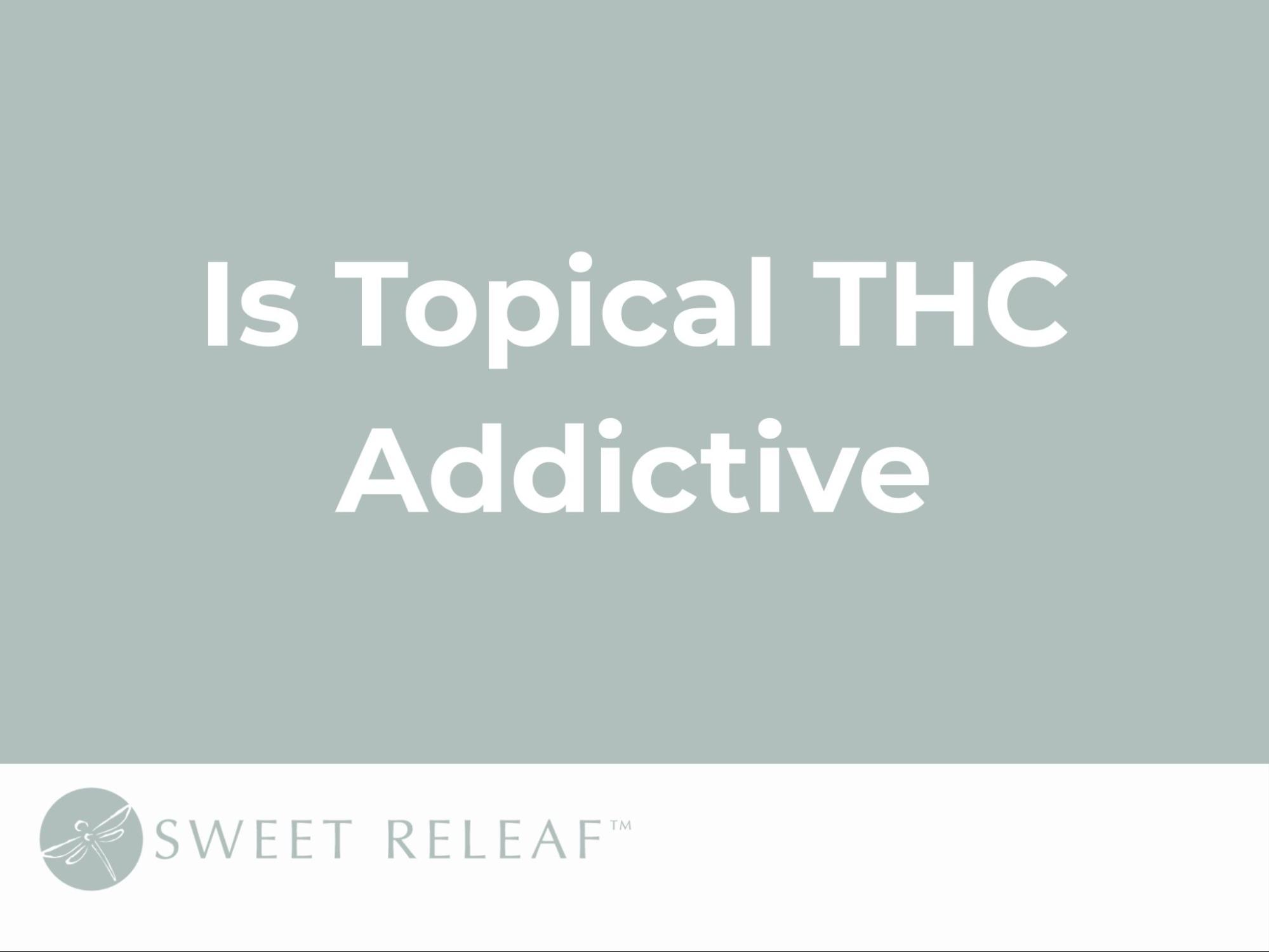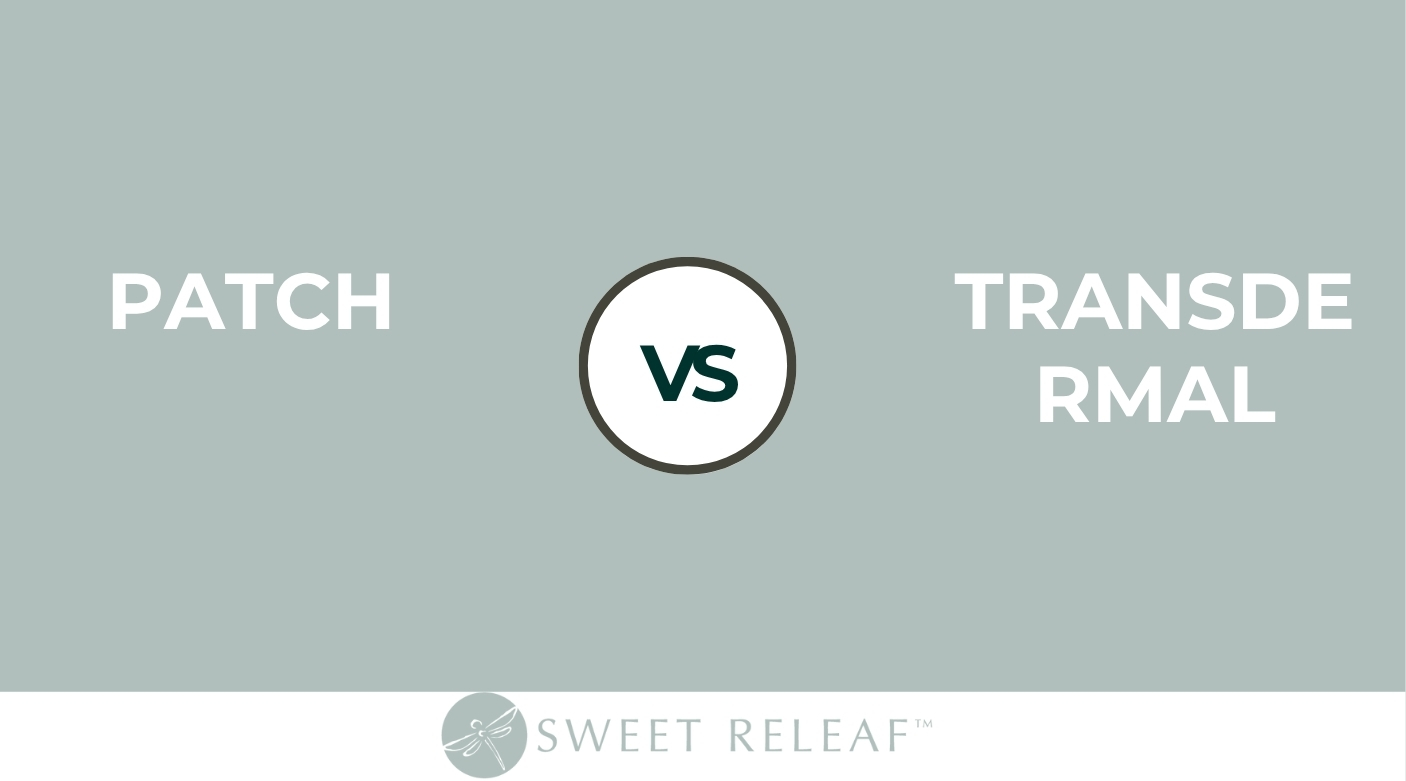Looking for fast, safe, and natural relief from inflammation? Discover how topical creams work, which ingredients matter, and why high-THC options like Sweet Releaf offer lasting comfort, without the high, side effects, or greasy mess.
Topical creams for inflammation can be incredibly effective, but not all are created equal. Some offer only surface-level relief or take weeks to work.
The most powerful solutions tend to be those that penetrate deeper, act quickly, and use ingredients your body already knows how to respond to.
How you choose a cream may vary based on your situation:
- Chronic arthritis or joint pain: Look for non-psychoactive high-THC topicals with long-lasting effects.
- Post-surgery recovery: Emulsion formulas with deep absorption and anti-inflammatory cannabinoids offer clean, opioid-free relief.
- Muscle soreness: Cooling or warming roll-ons with fast-acting ingredients can help soothe overworked tissues.
- Autoimmune inflammation: Choose fragrance-free, non-irritating formulations that don’t disrupt sensitive skin barriers.
- Natural alternative seekers: Full-spectrum cannabis topicals using whole-plant inputs provide serious relief without synthetic ingredients or side effects.
If you’re wondering what cream is best for inflammation, how fast it works, or whether it’s safe for daily use, you’re in the right place.
We’ll break down which ingredients actually work, how to avoid the ones that don’t, and why THC-forward topicals are changing the game for real pain relief.
Sweet Releaf offers one of the only high-potency, non-psychoactive cannabis creams on the market today, designed to treat pain, not only distract from it.
If you’re tired of greasy CBD salves or pills that come with risks, our Comfort+ Extra Strength Body Butter could be your next best step.
Want the full breakdown? Keep reading.
What Are Topical Anti-Inflammatory Creams, and Do They Actually Work?
Topical anti-inflammatory creams are designed to target pain and swelling right at the source, your skin, joints, or muscles, without requiring you to swallow a pill or endure full-body side effects.
These creams absorb through the skin and interact with localized tissues to reduce inflammation, ease tension, and offer relief precisely where it hurts.
How Topical Creams Deliver Relief
Unlike oral medications, which circulate through your entire bloodstream, topical creams work where you apply them.
Many use active compounds that bind to receptors in your skin and underlying muscles to block inflammatory signals or soothe nerve responses.
This localized action is especially useful for joints near the surface, like your knees, hands, neck, or shoulders.
NSAIDs vs. Herbal vs. Cannabinoid-Based Creams
Not all topicals are created equal, and what’s inside matters beyond what you might think.
- NSAID creams (like diclofenac/Voltaren) reduce inflammation by blocking COX enzymes. They’re backed by clinical studies and work quickly, but repeated use can still cause skin dryness or irritation.
- Herbal/capsaicin-based creams use ingredients like arnica, menthol, turmeric, or cayenne to warm, cool, or relax muscles. These offer surface-level relief and can work well in the short term, but may not touch deeper inflammation.
- Cannabinoid creams (like those with THC or CBD) activate your body’s endocannabinoid receptors (CB2) in the skin. THC, in particular, has shown stronger anti-inflammatory effects than CBD alone and doesn’t cause a high when applied topically.
Do These Creams Only Mask Pain or Actually Reduce Inflammation?
This is a valid concern, and the answer depends on the product. Some topicals only block pain signals, offering a numbing sensation without addressing the root issue.
Others, particularly those with anti-inflammatory compounds like THC or diclofenac, actually reduce the underlying inflammation causing the pain.
So yes, the right topical creams can do both: calm your nerves and lower the chemical processes behind inflammation.
How Long Do They Take to Work?
- NSAIDs and high-THC topicals: Relief can start within 5–30 minutes, depending on application and formulation.
- CBD-only creams: Effects may take days or weeks of consistent use to notice a change.
- Menthol/capsaicin formulas: Effects are often immediate but short-lived.
Can Topicals Heal the Root Cause, or Only Ease the Symptoms?
For conditions driven by chronic inflammation, like arthritis or post-surgery healing, the best topicals can do beyond soothe.
They can interrupt the inflammatory process, giving your body space to repair.
That said, no cream alone can cure the root cause of joint degeneration or autoimmune flare-ups, but the right one can absolutely help you manage it better.
If you’re looking for real, targeted relief that does not compromise your liver, gut, or headspace, a well-formulated topical might be your smartest move yet.
Best Topical Cream Ingredients for Reducing Inflammation
Finding the right topical cream starts with knowing what ingredients truly make a difference.
While flashy labels and trendy buzzwords can be distracting, it’s the compounds inside that determine whether you feel lasting relief or end up disappointed (and greasy).
What to Look For on the Label
Diclofenac (Voltaren), Menthol, Capsaicin
These are the backbone of most over-the-counter anti-inflammatory creams:
- Diclofenac is a proven NSAID that reduces swelling and stiffness, especially effective for arthritis pain in hands and knees.
- Menthol offers a cooling sensation that distracts from pain and enhances circulation.
- Capsaicin desensitizes pain receptors with repeated use, often used for nerve-related or chronic pain.
Each has its pros, but they don’t work for everyone, and some can irritate sensitive skin.
Natural Botanicals: Comfrey, Arnica, Turmeric, Cayenne
These plant-based powerhouses deliver gentle but effective anti-inflammatory and analgesic effects:
- Arnica reduces bruising and muscle soreness.
- Turmeric and cayenne offer heat and blood flow stimulation to relax tight areas.
- Comfrey has been traditionally used to soothe sprains and joint pain.
These are ideal for anyone seeking a holistic approach, especially when paired with cannabinoids.
THC vs. CBD: What’s the Difference?
Most people assume CBD is the go-to for inflammation. But here’s the reality:
- CBD can help with skin inflammation and mild discomfort, but often takes weeks of daily use to show real effects.
- THC (when applied topically) interacts more directly with pain and inflammation pathways and typically works within minutes, without getting you high.
For deep, fast relief, full-spectrum THC topicals often outperform CBD-only options, especially in chronic or post-surgical scenarios.
Unique Insight: Look for CBG or CBN
Emerging research and user anecdotes point to even better results when CBG (Cannabigerol) or CBN (Cannabinol) are included.
These lesser-known cannabinoids may reduce inflammation and pain in different ways than THC or CBD, offering broader support for complex conditions like fibromyalgia or neuropathy.
What to Avoid
Over-Fragranced or Greasy Formulations
That “spa scent” may seem nice at first, but strong synthetic fragrances can irritate skin or linger unpleasantly.
And greasy creams? They stain clothes, feel sticky, and make daily use a chore. Look for emulsion-style formulas that absorb cleanly without residue.
Low-Dose Hemp CBD-Only Topicals
The market is flooded with creams boasting “hemp extract” or “CBD-infused” on the label, but many contain negligible amounts of active compounds.
If they don’t list cannabinoid content in milligrams, you’re probably getting a placebo.
Hidden Irritants in Sensitive Skin
If you have rosacea, eczema, or post-surgical healing skin, avoid alcohol-heavy formulas, menthol overload, and synthetic dyes or parabens.
Some creams might relieve pain only to trigger redness, itching, or flare-ups elsewhere.
When in doubt, simpler is better, and full-spectrum cannabis creams like Sweet Releaf are often formulated with skin-soothing botanicals alongside powerful cannabinoids. That’s a win-win.
Which Topical Creams Work Best for Different Types of Inflammation?
Not all inflammation shows up the same way, and the best cream for you depends on what your body is going through.
Whether it’s chronic arthritis, recovery from surgery, or sore muscles after a long hike, your needs are different, and so are the topicals that meet them.
Chronic Pain from Arthritis or Joint Issues
If stiffness, swelling, and constant joint pain are part of your daily routine, quick fixes won’t cut it.
- Look for: High-potency THC topicals like Sweet Releaf Comfort+, which interact with CB2 receptors in inflamed tissue to reduce both pain and inflammation at the source.
- Avoid: Menthol-only creams or lightweight gels that evaporate fast and leave you right back where you started.
THC topicals offer deep, long-lasting comfort without systemic side effects, ideal for aging joints and recurring flare-ups.
Post-Surgery Recovery
Your body needs support while healing, not only numbing agents.
- Choose: Non-greasy emulsion-based formulas that absorb quickly and cleanly, delivering real anti-inflammatory effects without irritating surgical sites.
- Real-world insight: Many Sweet Releaf users rely on our products during post-op recovery to manage pain and avoid opioids altogether, restoring comfort without fogginess or dependency risks.
This makes THC topicals an empowering alternative during sensitive healing periods.
Muscle Soreness from Exercise or Overuse
Pushed yourself too hard? Your muscles are screaming for relief.
- Use: THC-infused roll-ons that feature warming or cooling botanicals (like camphor or peppermint) to soothe tension, enhance circulation, and ease inflammation.
- Real-world tip: Sweet Releaf’s Ayurvedic Cooling and Warming Roll-Ons are loved by hikers, runners, and weekend warriors alike. They’re portable, non-messy, and deliver targeted recovery exactly where you need it.
No pills, no downtime, only back to motion faster.
Autoimmune Inflammation (RA, Lupus, Fibromyalgia)
When your immune system turns on your own tissues, inflammation can be widespread, unpredictable, and deeply uncomfortable.
Important: Seek fragrance-free, cannabinoid-rich topicals that reduce inflammation without triggering skin reactions. Creams with vasodilators or menthol might be too harsh.
Many ask, “Can I use THC topicals while taking immunosuppressants like Enbrel or prednisone?”
The answer is yes, in most cases, since topicals don’t interfere systemically. But it’s always smart to consult your doctor before layering treatments.
Sweet Releaf’s full-spectrum, whole-plant formula offers a gentle yet powerful option for these complex pain profiles.
Want Natural Alternatives to Pharmaceuticals?
You’re not alone. More people are rethinking the long-term cost of ibuprofen, opioids, or steroid creams.
- Go for: Full-spectrum cannabis topicals made with whole-plant extracts. These leverage the “entourage effect” of cannabinoids, terpenes, and botanicals to ease inflammation and support the body’s natural healing.
- Avoid: Isolated CBD-only creams, or gimmicky “hemp miracle” rubs with barely measurable actives.
Products like Sweet Releaf bridge the gap between science-backed effectiveness and clean, ethical sourcing, giving you control over your wellness without synthetic shortcuts.
What Makes Sweet Releaf Different?
When it hurts, most creams barely scratch the surface. They cool, tingle, or distract, but don’t actually solve the problem.
Sweet Releaf was designed to go deeper, both in formulation and philosophy.
THC That Doesn’t Get You High
We use Delta-9 THC, the compound known for its potent anti-inflammatory and pain-relieving properties, but in a way that’s completely non-psychoactive.
That means you get all the body relief without any mental fog, grogginess, or high. If CBD hasn’t worked for you, there’s a reason: THC does what CBD often can’t.
Emulsion Body Butter, Not a Greasy Salve
Most topicals are oil-based salves that sit on top of your skin, leaving a sticky layer behind. Ours is different.
We use a high-shear emulsion process that creates a rich, buttery texture, absorbing deeply, quickly, and cleanly.
It feels like a luxury skincare cream but works like a therapeutic treatment. No mess. No slime. Only results.
Formulated by People in Pain
Sweet Releaf was not born in a boardroom. It started in a grandmother’s kitchen, created to help her daughter recover from a devastating car accident.
Since then, our formulas have been refined by real people managing real pain, from post-op healing to gardening soreness to grueling hikes.
We know what relief should feel like, because we’ve needed it ourselves.
Trust and Transparency
We’re a small, independent company, not backed by venture capital, not run by hype. We don’t cut corners on ingredients, we don’t inflate claims, and we don’t exploit our labor.
What we do is simple: create effective, ethical plant medicine with love. Every jar is made by hand, tested for quality, and designed to help you get your life back.
If you’re looking for relief that actually works, you’re not alone, and you’re not out of options. You’re only one jar away from Sweet Releaf.
Ready to Stop Guessing and Start Feeling Better?
If you’re tired of wasting money on creams that promise relief but leave you disappointed, it’s time to try something that actually works.
Sweet Releaf Comfort+ Extra Strength Body Butter delivers potent, non-psychoactive relief using high-THC, full-spectrum cannabis, and it’s backed by real users who’ve found their way back to gardening, hiking, and pain-free sleep.
FAQs: What People Are Really Asking About Inflammation Creams
When it comes to managing inflammation, it’s not only about finding a cream that claims to work but choosing one that actually aligns with your body’s needs, your health situation, and your daily routine.
Here’s what people really want to know:
What cream is best for inflammation?
It depends on what’s causing your inflammation. For joint or muscle-related pain, topicals with THC (like Sweet Releaf Comfort+) consistently outperform hemp-only or CBD-only creams.
THC has stronger anti-inflammatory effects and penetrates more deeply without making you high when applied topically. If your goal is real, lasting relief, not only a tingling distraction, it’s the best option.
Can I use a topical anti-inflammatory with oral NSAIDs?
Sometimes, but not always. It depends on where you’re applying the topical, how often, and your overall medication load.
In general, using a diclofenac cream on your knee while taking ibuprofen for back pain is fine, but combining them on the same area could increase the risk.
Always check with your doctor if you’re stacking treatments for chronic conditions.
Why do some topicals irritate my skin?
There are a few culprits:
- Fragrances (especially synthetic ones)
- Menthol-heavy formulas
- Overuse, which can disrupt your skin barrier
If you have rosacea, eczema, or sensitive skin, stick to creams that are fragrance-free, alcohol-free, and made with botanical emollients.
Sweet Releaf’s emulsion base was specifically developed to be gentle on compromised or aging skin, while still delivering serious anti-inflammatory benefits.
How can I heal skin inflammation fast?
First, identify whether the issue is muscle-related, autoimmune, or topical (like contact dermatitis). For rapid relief:
- Use a cream that calms and corrects, not only numbs. Look for ingredients like full-spectrum THC, calendula, and arnica, backed by soothing emollients.
- Apply consistently, ideally after a shower when skin is warm and pores are open.
Sweet Releaf emulsions combine THC with botanicals that calm the skin and reduce inflammation at the source.
That’s fast, clean healing, without synthetic ingredients or greasy residue.




